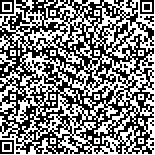| 摘要: |
| 目的 对中国乡村旅游政策文献进行分析,为乡村振兴背景下乡村旅游政策制定提供理论依据与实践指导。方法 文章运用CiteSpace文献计量工具对近10年中国乡村旅游政策进行可视化文献分析,系统性剖析乡村旅游政策研究的现状、机构、热点和趋势等。结果 (1)发文量呈现稳步上升趋势,合作作者之间网络密集度不高,多数作者之间的联系较为独立,个别团队之间网络连接较多。(2)排名前三的机构中2家为科研院所,合作网络较为丰富。排名前十五的机构中,11所是高校,高校之间联系不够紧密;研究前沿集中在“土地流转”“精准扶贫”乡村振兴”等,表现出阶段性热点转向。(3)研究热点围绕乡村旅游、乡村振兴、精准扶贫、休闲农业、产业融合、影响因素、中国、乡土文化、新业态、文旅融合、旅游业、动力机制、旅游发展、角色感知这14个主题开展。(4)研究趋势呈现出由宏观向微观,由学科延伸向学科跨越的发展趋势。结论 未来的研究中可扩展学科领域范围,如向乡村公共管理、美学、数字化乡村领域等扩展;加强作者和机构之间的合作,如加强国内科研院所与高校的合作及高校之间的合作,尤其是东南部高校与中西部高校之间的合作;深入探索其他研究热点,如乡村青年返乡创业、乡村碳达峰、数字乡村发展等政策热点。 |
| 关键词: 中国 乡村旅游 乡村旅游政策 CiteSpace 可视化分析 文献计量分析 |
| DOI:10.7621/cjarrp.1005-9121.20240816 |
| 分类号:F323;F592 |
| 基金项目:国家社科基金一般项目“一带一路视阈下万里茶道旅游品牌的共商共建共享机制研究”(18BGL148);内蒙古自治区教育厅项目“内蒙古自治区高等学校创新团队发展计划:文化旅游融合发展研究”(NMGIRT2206) |
|
| THE RESEARCH STATUS AND TREND OF RURAL TOURISM POLICY IN CHINA——BIBLIOMETRIC ANALYSIS BASED ON CITESPACE |
|
Wang Yafeng
|
|
College of History and Tourism Culture, Inner Mongolia University, Hohhot 010070, Inner Mongolia, China
|
| Abstract: |
| This study aims to analyze the literature on Chinese rural tourism policy, so as to provide theoretical basis and practical considerations for rural tourism policy formulation in the context of rural revitalization. The CiteSpace bibliometric tool was used to conduct a visual literature analysis of China's rural tourism policies in the past 10 years, the current status quo, research institutes, hot spots and development trends of rural tourism was systematically analyzed. The results were listed as follow. (1) The number of publications showed a steady upward. The network density among co-authors was not high, with most authors having relatively independent connections and some teams having more network connections. (2) Two of the top three institutes were research institutes with a rich collaborative network. Among the top fifteen institutions, 11 were universities, and the connections between universities were not close enough. And the research frontier focused on "land transfer", "targeted poverty alleviation", rural revitalization ", etc., showing a phased shift in hotspots. (3) Research hotspots focused on the 14 themes: rural tourism, rural revitalization, targeted poverty alleviation, leisure agriculture, industrial integration, influencing factors, China, local culture, new business models, cultural tourism integration, tourism industry, driving mechanisms, tourism development, and role perception. (4) The research trend showed a development trend from macro to micro, and from disciplinary extension to interdisciplinary crossing. Therefore, in future research, we should expand the scope of disciplinary fields, such as extending to rural public management, aesthetics, digital rural areas, etc; and strengthen cooperation between authors and institutes, such as strengthening cooperation between domestic research institutes and universities, as well as between universities, especially between universities in the southeast and central and western regions; then explore other research hotspots in depth, such as rural youth returning to their hometowns for entrepreneurship, rural carbon peak, digital rural development and other policy hotspots. |
| Key words: China rural tourism rural tourism policy CiteSpace visual analysis Bibliometric analysis |

